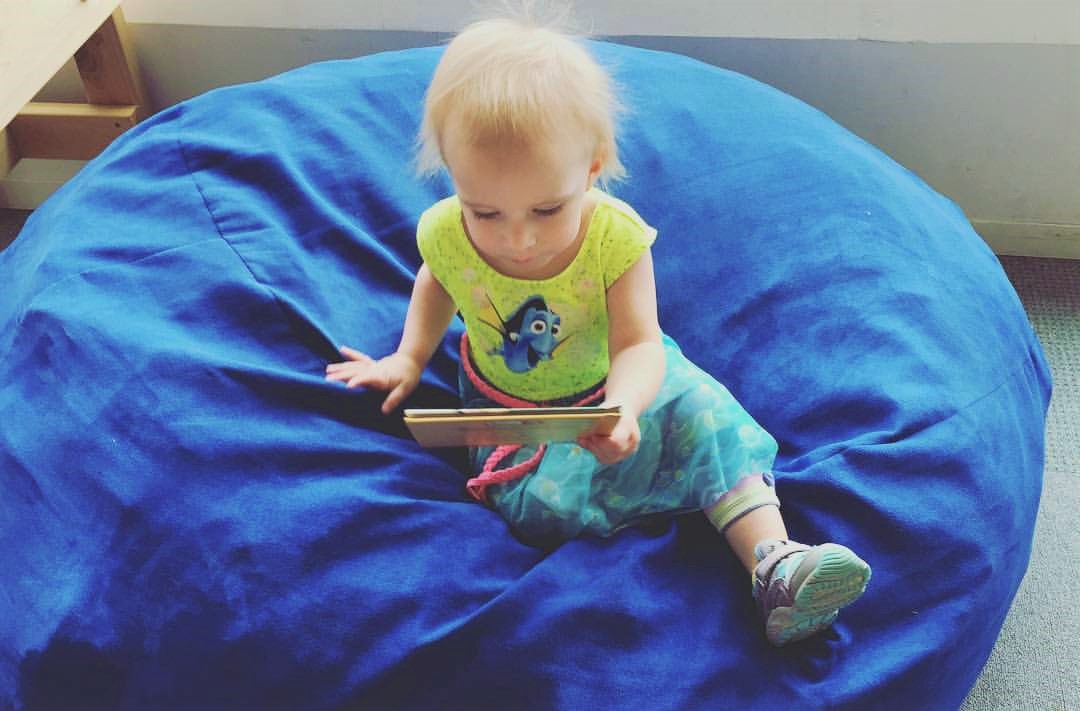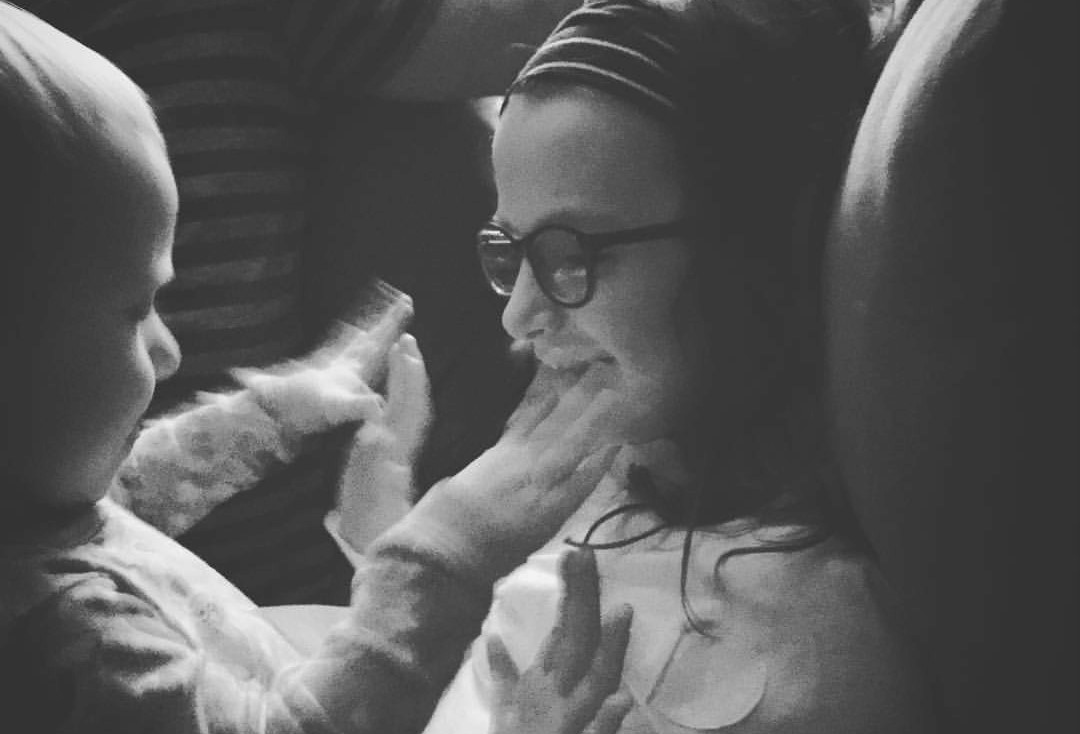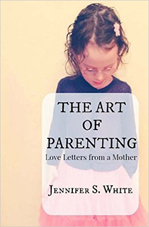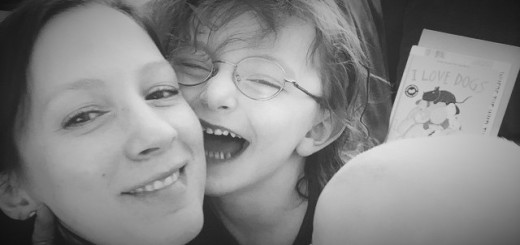Why All of This “Mom Guilt”?
She smiled up at me. The sun hit her face, and half of it was white-lit, the other half shadowed and displaying the temporary tattoo we had given her for her second birthday.
The day wasn’t what I had imagined at all. It was a struggle. It was a typical day with little kids instead of a picturesque birthday one. My 6-year-old daughter had been almost more excited about her sister’s birthday than my toddler. They both woke up ready for “a party.”
But my now-2-year-old was fussy, and unhappy. (We think maybe she had a cold.)
My oldest was disappointed that the day didn’t contain anything over the top, aside from birthday cake and presents.
Mom guilt washed through me.
I felt emotionally crippled by the significance of my “baby” turning 2, by the remembrance of her birth and how not so far away it seemed, and by this somewhat panicky sensation that I was incapable of making a day special enough to celebrate how joyful this child’s addition to our family and to the world is.
I stuffed this feeling down, mostly.
I crammed it behind alternate too-bright smiles and a crinkled-with-stress forehead. I hushed it behind the gifts, the cuddles and even the one timeout we gave our birthday girl. I took my oldest to the grocery store ― just the two of us on an errand she loves, while my husband and the birthday girl stayed home. I wanted to warm the overall feel of our day.
The next day, the mom guilt still radiated through me.
I’m not someone who believes in, or gives time to, regrets ― thinking of how I would do things differently isn’t worthwhile. And yet: I couldn’t stop thinking of what I could have done differently to make my toddler’s birthday better.
My husband even commented the next day, as we sat together after the kids had gone to sleep, that mom guilt was obviously eating me. He never uses that term. He doesn’t usually comment on how I seem to feel either, but asks instead. It must have been obvious.
He doesn’t have the same guilt because he doesn’t have the same pressure. He’s equally a parent in our household ― he’s easily the better parent ― but it’s me who feels this thing, so appropriately named “mom guilt.”
Why do women feel this?
Why does it haunt us?
Why all this “mom guilt”?
Mothers are expected to fulfill so many roles, while also maintaining our own feminist independence. We attack women who are happy as stay-at-home moms. We feel sorry for women who don’t maintain their own self-care. We guilt women who are successful at work.
Societally, we want women who are strong and independent, yet who are also perfect mothers; who are sex goddesses ― but not too sexy, or sexual for self-pleasure.
We polarize women, and women buy into it, even in our most private emotions.
My husband has his own pressures, too. Our marriage is a modern one where we share household responsibilities and child care when we’re both at home. But it’s only me experiencing these waves of “mom guilt.”
My sadness over my last baby turning 2 hit me powerfully days after her actual birthday. I let myself cry over how I much I miss my oldest child when she’s at school all day, and how “before I know it” my brand-new 2-year-old will be at school, too. I let myself panic a little that I’m investing so much of my heart and self into these two children whom I’m raising to leave me.
For another day I felt pathetic, as the guilt left. I felt sad for myself that I’m pouring so much of me into these two people. I questioned if my passionate desire to be present in their childhoods meant I’m neglecting my own needs.
“Is this where the guilt comes from?” I wondered.
I turned this question over and over and over for another day. This is what I kept coming back to: I’m happy. I love my life. I love being absorbed in little-kid smiles, and school bus schedules, and squeezed-in moments for the “me” outside of the “mommy,” like when I get my hair colored or go out without my kids or husband for an afternoon.
The guilt comes from knowing I could always do better than I did, and caring enough to churn over where I can grow and better myself as a parent. The guilt is born from love, even if it’s not healthy, for me or my family.
After all of the overthinking, I let the guilt go.
I didn’t let it go by pretending it was gone and I didn’t have negative emotions in the first place. I acknowledged my guilt was real, and that it was definitely not my last time dealing with it. I chose to validate and respect the difficulty and significance of being a mother, combined with the complexity of being a living, breathing, imperfect person.
More, I reminded myself consciously that lifetimes aren’t made up of one day or one bad choice, or one argument.
Childhoods are made of parents trying their best, with love and attention, and apologies, and examples; they’re made up of little kids learning, and growing, and making their own mistakes.
I want to display to my daughters, especially, that a bad day doesn’t equal a bad life.
I want to show them we can have days, or even weeks, when we feel sad and life feels heavy, but that it moves and shifts and changes all of the time, and so do we.
Yesterday the sun was out and the air was unseasonably warm. My little girls and I sat outside after my oldest had arrived home from school. I watched them laugh and play and eat snacks at their plastic picnic bench. They looked happy.
I breathed in this contentment for when “mom guilt” shows up again at our house unexpectedly; for when I need a vision of how good my life really is, and how great of a mom I am.










